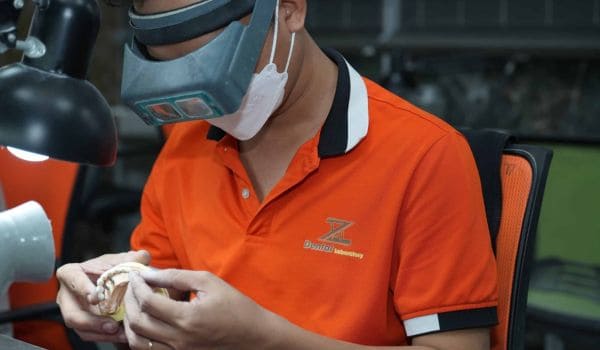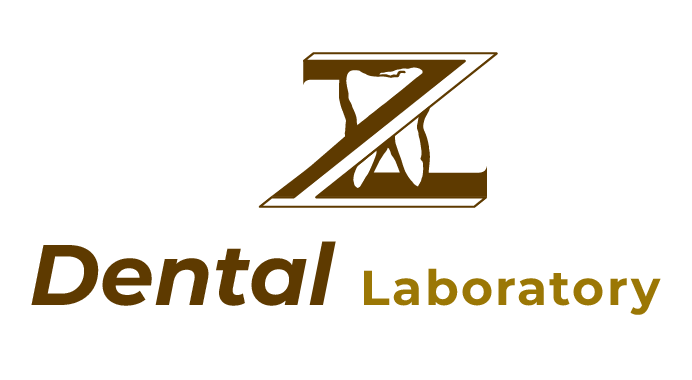Outsourcing Dental Lab: Building a profitable and efficient dental lab depends on having the right number of skilled technicians. Understaffing can lead to delays and burnout, while overstaffing can strain your budget.
In this comprehensive guide, we will explore:
- The complexities of dental lab staffing and how to calculate your ideal team size.
- The qualifications and skills required for dental lab technicians.
- The importance of teamwork in lab productivity and quality.
- The costs associated with building an in-house team.
- The advantages of outsourcing dental lab services and how it can address staffing challenges.
How Many Staff Does a Dental Lab Need?
Determining the ideal number of technicians for your dental lab is a crucial decision that directly impacts your efficiency, quality, and bottom line. While there’s no one-size-fits-all answer, you can consider the following key factors:
Case Volume:
When planning your dental lab, the projected volume and complexity of dental restoration cases will play a significant role in determining the size and structure of your team.
- High-Capacity Lab: If you plan to handle a large volume of diverse restoration cases, from crowns and bridges to implants, you’ll need a large and versatile team of technicians. This ensures your lab has enough manpower to meet demand, maintain fast turnaround times, and ensure product quality.
- Specialized Lab: If you focus on specialized services like full-mouth restorations, complex implants, or cosmetic dentistry, you might need a smaller team with highly specialized skills and extensive experience in their respective fields. Investing in training and professional development for these technicians is key to ensuring the quality and accuracy of your products.
Turnaround Time Expectations:
Turnaround time – the time from receiving a case to completing the product – is a crucial factor influencing customer satisfaction and your lab’s reputation.
- Fast Turnaround: If you aim to build a reputation for fast and reliable service, you’ll need a sufficiently large team to handle restoration cases efficiently. This might involve clear task delegation, streamlined workflows, and the use of advanced technology to accelerate production.
- Standard Turnaround: If you prioritize quality and accuracy over speed, you can build a smaller team. However, it’s important to ensure you have enough staff to meet demand without overburdening any individual, ensuring product quality remains at the highest level.
By carefully considering the volume and complexity of restoration cases, as well as turnaround time expectations, you can build a team that aligns with your dental lab’s goals and business strategies.
Types of Restorations and Technology:
When building your dental lab, deciding on the types of restorations you’ll offer and the technology you’ll use will directly impact the size and expertise of your team.
- Diverse Restorations: If you plan to offer a wide range of restoration services, from crowns and bridges to implants and dentures, you’ll need a team with diverse skills. This ensures you have the expertise to handle any type of restoration, meeting the needs of various clients.
- Specialized Restorations: If you choose to focus on a specific type of restoration, such as implant restorations or cosmetic dentistry, you can build a smaller, more specialized team. This allows you to invest in training and development, ensuring the highest quality and precision for your products.
- Advanced Technology: Investing in advanced technology like CAD/CAM (computer-aided design and manufacturing) systems can reduce the number of technicians needed. These systems automate many processes, minimizing human error and speeding up production. However, you’ll still need skilled technicians to operate and maintain the equipment.
- Traditional Methods: If you opt for traditional methods and techniques, you might need a larger team to ensure timely and quality work. These techniques often require more manual labor and can be more time-consuming than digital methods.
Quality Control Standards:
Product quality is paramount for any dental laboratory.
- Stringent Standards: If you aim for the highest quality, you should establish rigorous quality control procedures. This might involve multiple inspections by different technicians, using precise measuring tools, and adhering to international standards. A larger team might be necessary to effectively implement these quality control processes.
- Standard Practices: If you follow basic quality control standards, you might not need a large team. However, ensuring that all technicians are well-trained in these standards and committed to maintaining product quality is crucial.
Dental Lab Technician Requirements: The Foundation of Expertise
Recruiting and retaining top talent is essential. Look for the following qualifications:
- Education: Dental technology programs, certificates, or diplomas demonstrate foundational knowledge. On-the-job training and apprenticeships also play a significant role.
- Certifications: Certified Dental Technician (CDT) credentials are highly valued. Specialty certifications in areas like crown and bridge or ceramics indicate advanced expertise.
- Experience: Seek experience relevant to your lab’s specific offerings. Years of practice hone skills and problem-solving abilities.
Essential Skills: Manual dexterity, meticulous attention to detail, critical thinking, effective communication, and the ability to adapt to new technologies are crucial for success.

The Financial Realities of Building an In-House Team
Building and maintaining an in-house team involves substantial costs, directly impacting the profitability of your dental laboratory. These costs can be categorized into two main types: direct costs and indirect costs.
Direct Costs:
These are the most obvious and easily measurable expenses associated with hiring and maintaining a team of dental lab technicians. They include:
- Salaries: The base pay for dental technicians, depends on their experience, qualifications, and position.
- Benefits: Employer contributions to health insurance, dental insurance, life insurance, paid time off, sick leave, and other benefit programs.
- Recruitment Fees: Costs associated with posting job ads, screening applicants, conducting interviews, and performing background checks.
- Training Programs: Expenses for initial training of new employees, as well as ongoing training to enhance their skills and knowledge.
- Continuing Education Expenses: Investments in workshops, conferences, and courses to ensure your technicians stay up-to-date with the latest advancements in dentistry.
Indirect Costs:
Indirect costs are less obvious but can significantly impact your lab’s profitability. They include:
- Lost Productivity Due to Understaffing: When your lab is understaffed, the workload can pile up, leading to delays, missed deadlines, and potential loss of clients.
- Lost Productivity Due to Turnover: Replacing employees who leave is costly in terms of time and resources, as the lab must recruit, train, and integrate new staff members.
- Quality Issues: Mistakes or poor-quality work can lead to costly remakes, causing financial losses and damaging the lab’s reputation.
- Management Overhead: Supervising, evaluating performance, and resolving conflicts within the team all require time and effort, which can increase indirect costs.
Understanding and managing both direct and indirect costs is crucial for maintaining the profitability of your dental lab. Labs may consider alternative solutions like outsourcing to mitigate some of these costs, especially when facing fluctuating demand or local talent shortages.
Outsourcing Dental Lab: A Strategic Solution for Staffing Challenges
Outsourcing dental lab work offers an attractive alternative:
- Access to Global Talent: Tap into a vast network of skilled technicians worldwide, overcoming local shortages and expanding your capabilities.
- Cost Efficiency: Lower labor costs in some regions, along with reduced overhead expenses for equipment and facilities, can significantly improve your bottom line.
- Scalability and Flexibility: Quickly adjust your capacity to meet fluctuating demand without the long-term commitment of hiring full-time employees.
- Focus on Core Business: Free up your internal resources to concentrate on patient care, practice growth, and marketing efforts.
Z Dental Laboratory – The Perfect Staffing Solution
With a team of over 200 technicians with more than 7 years of experience, Z Dental Laboratory is the perfect staffing solution for dental clinics and labs.
Outsourcing to a reputable dental lab like Z Dental Laboratory will provide you with a skilled team that delivers perfect restorations.
We are committed to product quality and fast turnaround times.
Experience our FREE TRIAL today to see the skills of our team!













